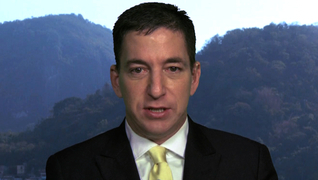
Attorney General John Ashcroft has appealed a ruling by the Foreign Intelligence Surveillance Court. In a unanimous ruling made public last Thursday, the court rejected a secret request made by the Justice Department this year to allow broader cooperation and evidence-sharing between counterintelligence investigators and criminal prosecutors. The court found the request was “not reasonably designed” to safeguard the privacy of Americans.
The court also said it has identified more than 75 cases in which it was misled by the FBI in documents in which the bureau attempted to justify its need for wiretaps and other electronic surveillance, according to the first of the court’s rulings to be released publicly.
But in a legal appeal made public Friday, Attorney General John Ashcroft said the judges failed to recognize the Patriot Act expands coordination between law enforcement and intelligence officers to allow them to protect the public in investigating threats.
Today we’re going to take a look at the significance of this dispute, and just what this secret court is.
Guests:
- James Bamford, author of the only two books on the National Security Agency, “Puzzle Palace: A Report on America’s Most Secret Agency” and “Body of Secrets: Anatomy of the Ultra-Secret National Security Agency from the Cold War through the Dawn of a New Century” (2001).
- Patrick Poole, civil liberties expert and privacy researcher.











Media Options